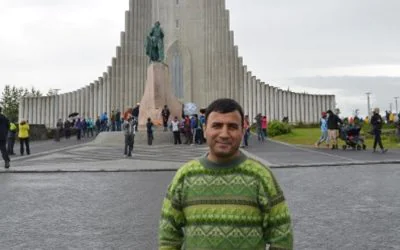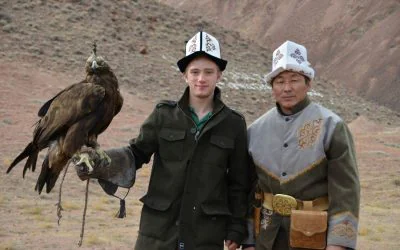Eric joined the small but select group of people who have travelled to every UN country last year. A musician by profession, he has decided to no longer have a permanent abode but to travel nonstop and make his temporary home wherever he chooses. He tells us more in today’s interview…
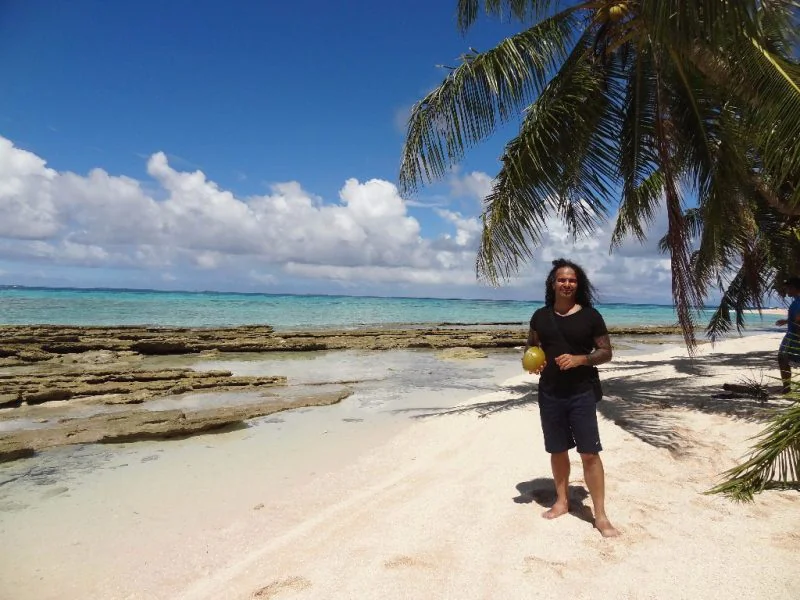
Tuvalu
Tell us something about your background and how your interest in travel developed.
My family immigrated from Africa to Canada when I was quite young, but we still made a yearly summer tour to see our relatives. That usually meant half a month in France, two months in Israel, then half a month in Spain. When I was 20, I moved to Germany for university and Europe became a natural fit for me, with its distinct cultures so closely packed together. Europe then became home for two decades.
Since being a musician has always allowed me to travel, I spent a lot of time going through Southeast Asia – the standard in beginner independent travel; it was somewhat exotic, yet not too-challenging to travel.
But what really kicked off my interest in places off the beaten path was Tajikistan; I used to spend hours looking through my huge Atlas and quiz myself with the world capitals. When I’d get to Dushanbe I would wonder what it was like, as I had no idea about anything there. So I went to Central Asia for a month, the first of several trips there. That was where my interest in travel became more active, as opposed to passively taking in the broad cultural mix that was already around me.
You visited your last UN country, Nauru, last year. What motivated you to do every country and how did it feel once you completed it?
I never set out to visit every country in the world. In the beginning I kept a list of places which I wanted to visit or certain local experiences, which naturally grew the more I travelled and either read about new places, or heard about them from other travellers. Many of these places required several visits to the same country, so it was never really country counting. At some point, every country in the world made it onto my list, which is more of a coincidence than anything else. It wasn’t something that I had set out to do for its own sake, although I did find the idea pretty cool!
When I reached Nauru and realised that I had been to every country in the world, I couldn’t quite grasp the concept of actually having “finished” anything. As a traveller, you’re used to travelling and travelling more. After pushing myself to discover continuously for so many years, it was about the journey rather than one set point. And, anyway, I’m still not done!
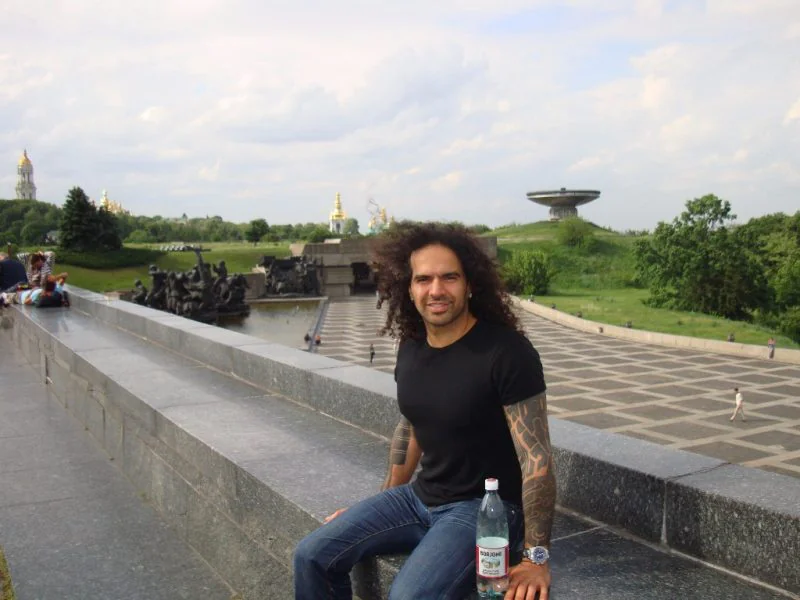
Kyiv, Ukraine
Of all the countries you went to, which ones surprised you most, positively or negatively?
Sudan was wonderful because of the unbelievably friendly people; São Tomé and Príncipe was also a true gem; the Comoros were also special. Africa is the standout gem of the world; if you’re a people-person, then it doesn’t get any better than in Africa. Not to mention that, in Africa, the culture and languages change not only from one border to the next, but sometimes also several times between national borders.
For the country that stands out negatively, it’s definitely Equatorial Guinea. The undercurrent of fear that runs through the place is palpable and it affected every interaction I had there. It’s one thing for me to write about it now, when there are people who don’t have the option of leaving.
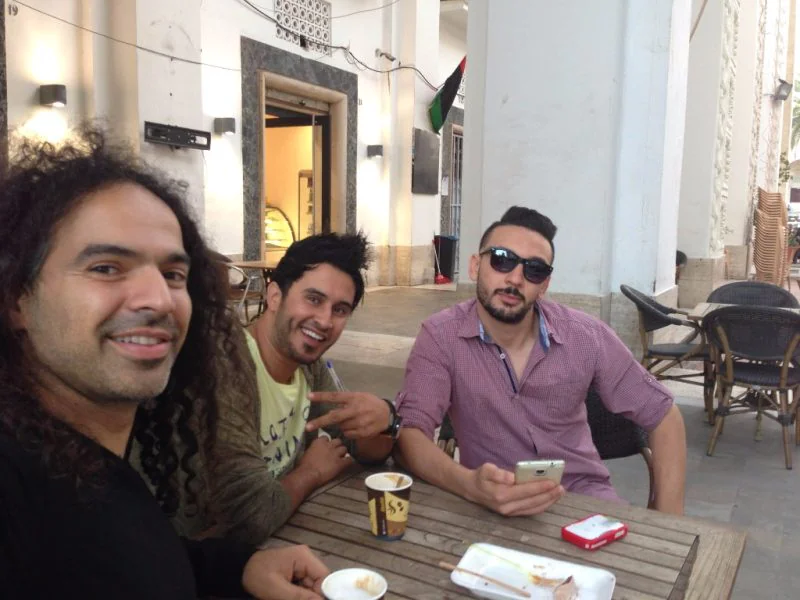
Tripoli, Libya
How did travel change you, if at all?
Travel is the best education I could ever have hoped for. My girlfriend saw how the preparation for my trips would often last longer than the trips themselves. There’s not only visa applications and travel arrangements to make, but I always want to be able to function well in the local language, and also to be well-versed in the local politics, economics and history. I was accused of being a CIA operative in many places — including by military officials who worked with the CIA in the past.
But all of this offers a fantastic insight into how people live. And at some point I understood that this was my personal goal when travelling: to understand not only how people live, but how they think. I really wanted to understand people all over the world.
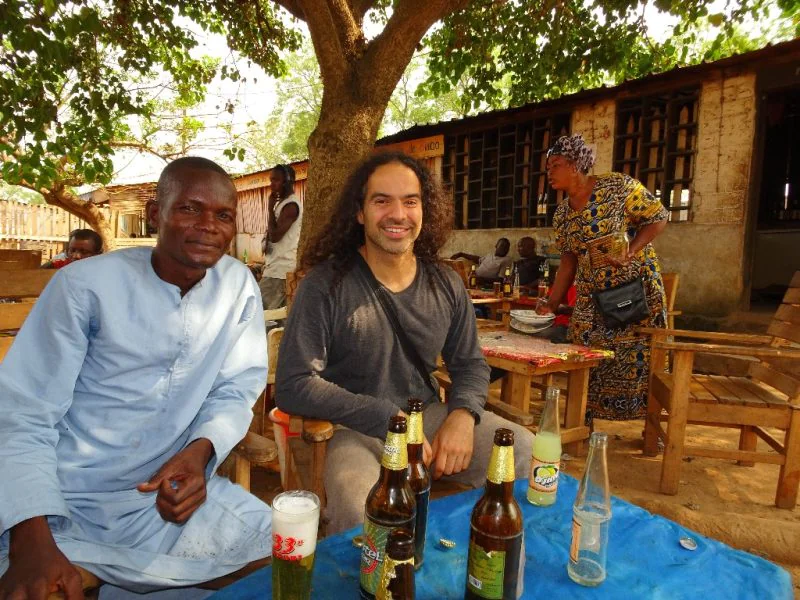
Bangui, Central African Republic
You have decided not to have a home, but live a life of constant movement nowadays. Tell us what made you decide this, how it works in practice and if you know other people who ‘have no home’
Ironically, my current nomadic lifestyle started after I finished the UN list!
I came home from one African trip and told my girlfriend that I was ready to leave. Essentially, travelling for so many years with nothing more than a small day pack (4.5 kg with everything) made me focus more on the moment and experiences with other people. I came home from that trip to find that I neither missed nor cared about any of my possessions. And that led me to ask why I even needed a home to come back to. We spent a bit of time wrapping up loose ends and selling everything off, and now we travel with hand luggage. I still own three guitars, but I don’t travel with them; they are usually forwarded to the next place where I will perform. As for a place to live, AirBnB offers lots of weekly or monthly rentals, furnished with everything you need.
The question I have been asked the most about this “nomadic” lifestyle is whether or not I miss my old things, like guitars with sentimental value. And, to be honest, I don’t. I really get the impression that most people enjoy owning a household, which I can also understand. For me, however, it’s just not my thing.
Do you have other travel aims now that you have finished the UN countries?
Yes, I plan on doing the entire list again, but this time alphabetically! No, I’m kidding…
For the last while I’ve been doing what I call “slow travel,” which means staying in one place for a few weeks at a time. My focus is usually to perfect my language skills. I’m also an avid reader, and this allows me to indulge myself and spend several hours a day doing that.
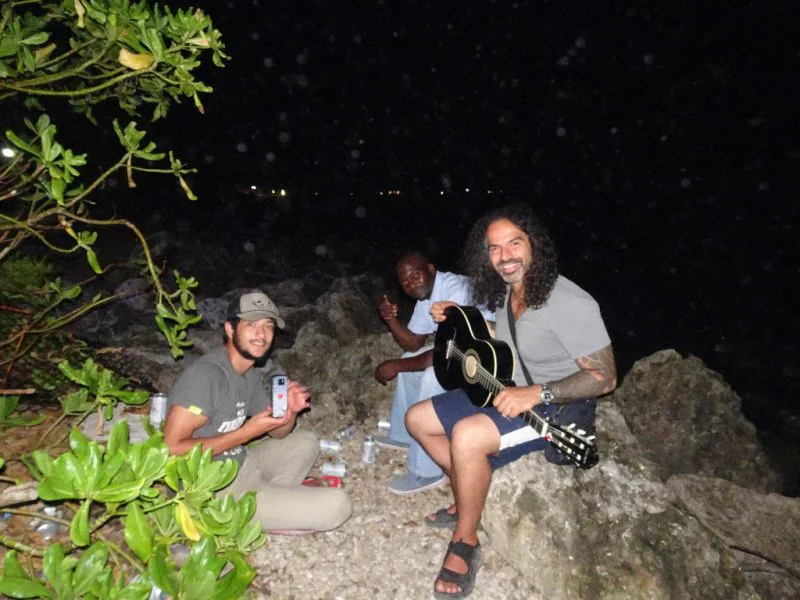
Completing all UN Countries in Nauru
You are a musician. Does this affect the way you see the world and how other people respond to you?
Absolutely! Food and music are the two fastest ways to access a culture, since we all have to eat and all like to listen to music. In addition, me being a singer means that I’m used to vocalising sounds that I hear, which has helped me a lot with new languages, and specifically pronunciation. And imagine arriving in any country of the world and being able to pick up a guitar and sing some songs; it’s a great way to meet people, exchange, and also give something back. And it’s true that it attracts women — in all cultures!
Tell us more about your music… any gigs where we can see you in the near future?
I actually don’t play much anymore, professionally. I was active in Northern Europe for a couple of decades, but now I’m unfortunately not around enough to maintain a significant presence. Music isn’t something that I can just stop doing, so I only play now as much as I need to. Music is still my greatest passion in life, and has been since I can remember.
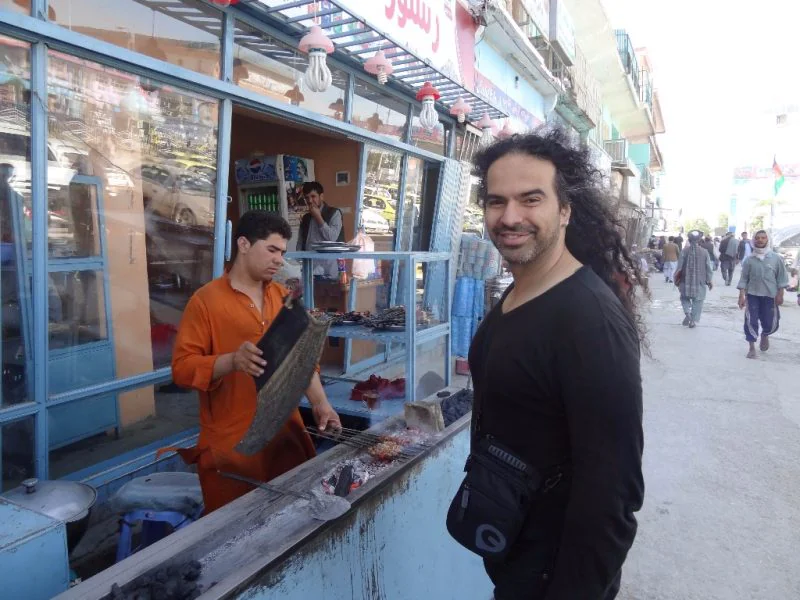
Mazar i Sharif, Afghanistan
What are your travel plans for the rest of 2017?
Summer in Budapest, then to Canada to visit my family. After that, the rest of the year in Mexico. Many people don’t realise just how large Mexico is; there is so much to see, do (and eat!) in such a huge country.
And finally our signature question – if you could invite any four people from any period in history to an imaginary dinner, who would you invite and why?
While there are many intellectual and literature figures whom I admire, I can’t imagine they would actually be good company. Charles Bukowski would be fun at first, but then he’d get drunk and ruin the whole mood for everyone. Knut Hamsun, as an introvert, would probably just sit there and be silently brilliant, so that wouldn’t do our dinner a lot of good. David Lee Roth would have great stories, but he wouldn’t let anyone else get a word in. So the best candidates would be:
Christopher Hitchens — one of my favourite intellectuals, the erudite bon vivant. I don’t agree with him on everything, but I admire the fact that he would know everything about everything. I even named my son after him.
Ian Bremmer — as a political and Economics junkie, I’d just listen in awe. He’s another nerd with an overactive brain who put it to good use. I have a lot of respect for people who are absolutely passionate about what they do.
My father — a brilliant person who lived a life that none of us will have the chance to live anymore. I only really discovered what he did when I was in my thirties. Life in Africa and Europe in the 1940’s, 50’s and 60’s presented challenges that we simply could not even imagine today. If I accomplish one-tenth of what he has accomplished in life, then I can call myself a man.
For the life of me, I can’t think of a fourth person I would be really interested in having at such a table… Perhaps Bill Hicks?
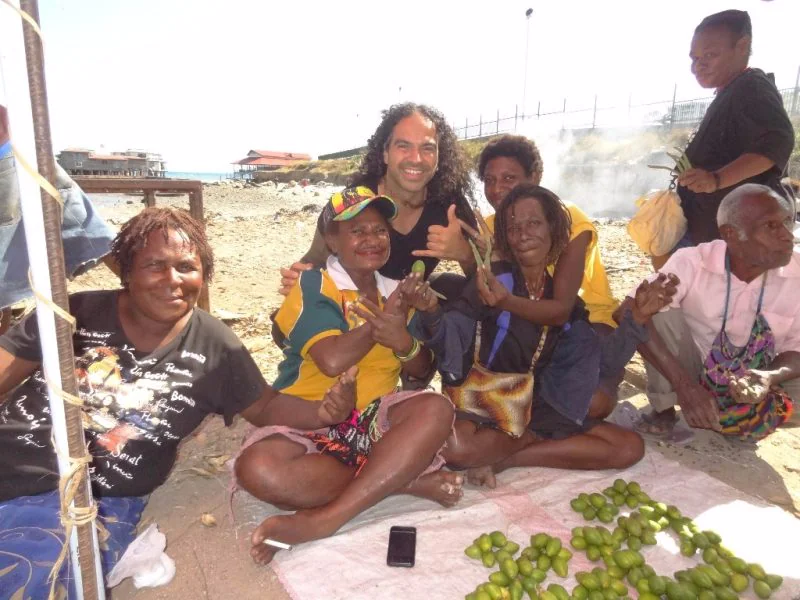
Port Moresby, Papua New Guinea
The photos in this interview are from Eric’s personal collection and we thank him for sharing them with us.
